In what some have dubbed an example of “digital-age humiliation,” a Shanghai airport traveler went viral after a clip of her being forced to violently wipe off layers of makeup was uploaded by an Instagram lifestyle account.
The now-viral incident, first posted on April 30, captures the aftermath of the airport’s facial recognition technology failing to match the woman’s face with her passport photo.
In the video, an off-screen voice, presumably belonging to an airport staff member, is heard chastising the woman in the background.
“Wipe everything off until you look like your passport photo,” the person demands. “Why would you do your makeup like that? You are asking for trouble.”
As she scrubbed, her red face wasn’t just the result of irritation—it was also from embarrassment.
A woman was forced to wipe off her makeup at an airport in Shanghai after facial recognition technology failed to match her with her passport
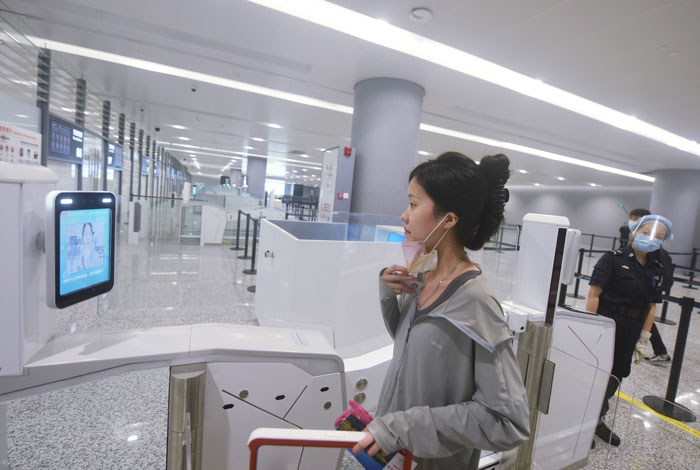
The video inspired a wide range of reactions online, ranging from ridicule to empathy to outrage.
On one hand, many viewers agreed with the assessment that she had “brought it upon herself” by going to the airport wearing heavy makeup. “She should’ve known better,” one user wrote. “Facial scanners can’t look past three layers of foundation.”
“Welcome to reality. You are supposed to look like your passport photo,” another argued.

Others sympathized with the woman and were instead critical of the voice that was urging her to remove her makeup fast while she was visibly distressed.
“This is so humiliating,” a viewer wrote. “She was already wiping her makeup off and was embarrassed enough. There was no need for them to keep going on like some naggy boomer.”
Still, some considered the incident to be an example of a broader debate, one that involves the extent to which technologies such as facial recognition have become ingrained in people’s daily lives despite offering, in their opinion, no real benefits.
“This is why machines shouldn’t have the last word,” one commenter argued. “It won’t be long before nobody remains with any common sense to override the all-or-not-at-all technology.”
Some observers saw the clip as proof of China’s Social Credit System’s intrusive involvement in citizen’s daily lives
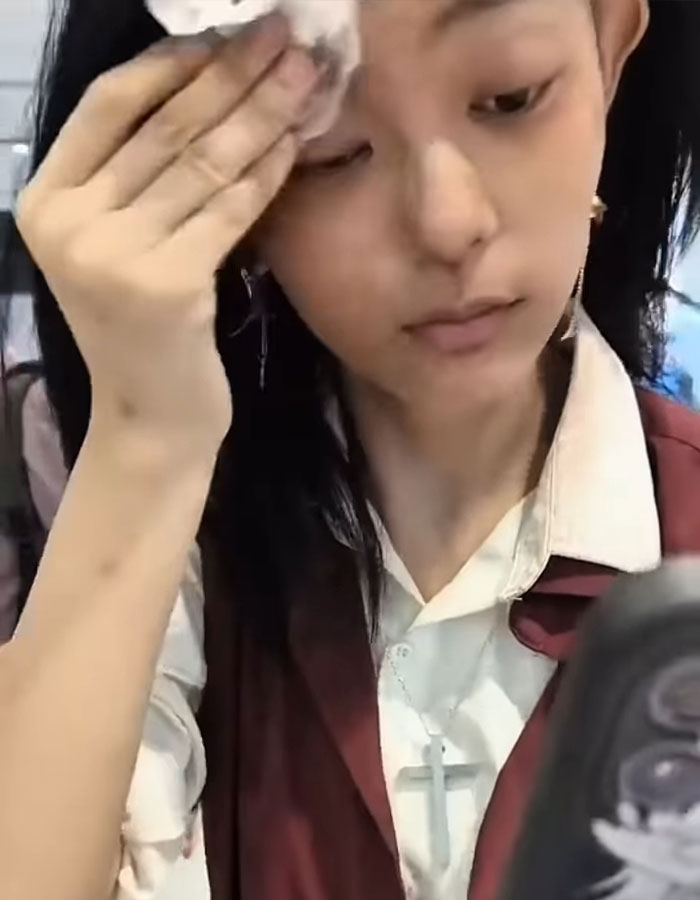
Though the clip was shared on a channel focused on lighthearted Chinese content, for many viewers it gave a sneak peek into the role of facial recognition in China.
Its integration into the country’s Social Credit System has been particularly criticized as intrusive due to its usage on cameras that monitor public areas.
Facial recognition at airports, train stations, and even public restrooms is more than a matter of convenience—it’s key to the state’s surveillance infrastructure.
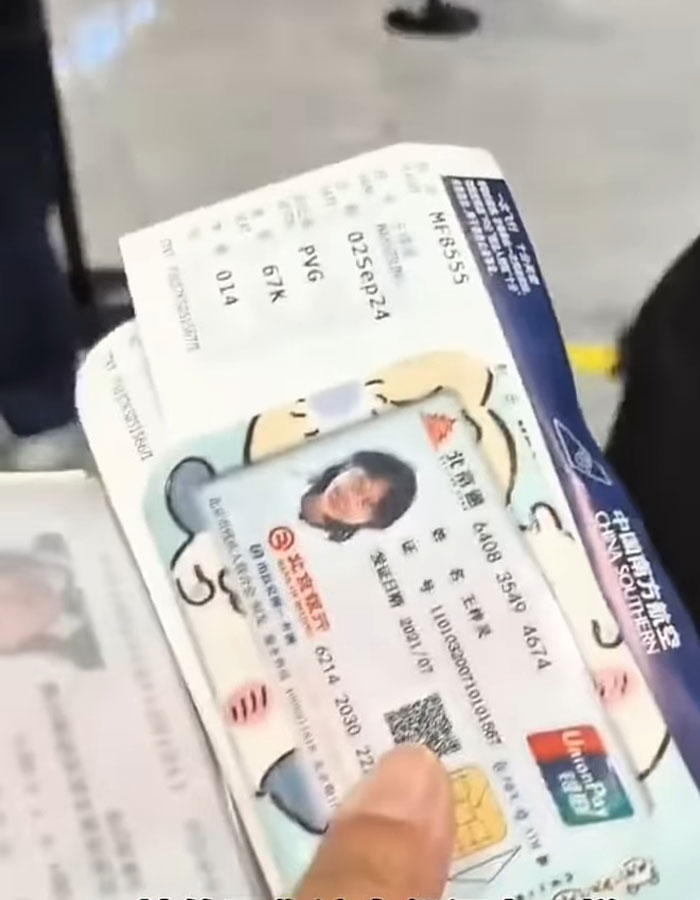
According to a 2020 Princeton University: Journal of International Affairs paper, “The system functions as a nationwide incentive mechanism, by collecting social credit information from every individual and enterprise to reward trust-keeping and punish trust-breaking behaviors.”
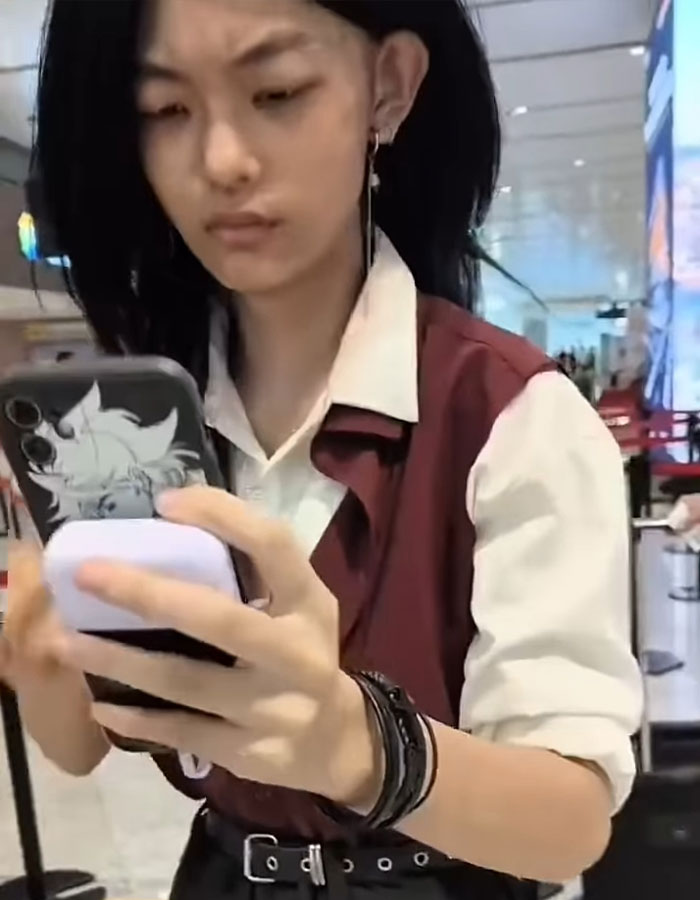
Originally intended as a market reform to reduce fraud and increase efficiency, the system has since expanded to include institutions such as the Central Propaganda Department, Ministry of Culture and Tourism, and the National Bureau of Statistics.
Those deemed untrustworthy—whether for defaulting on debts or failing to follow behavioral norms—risk being placed on a national blacklist, which can result in loan denials, job loss, and being barred from purchasing airline tickets.
A similar incident happened to a Brazilian model who had become unrecognizable after countless plastic surgery procedures
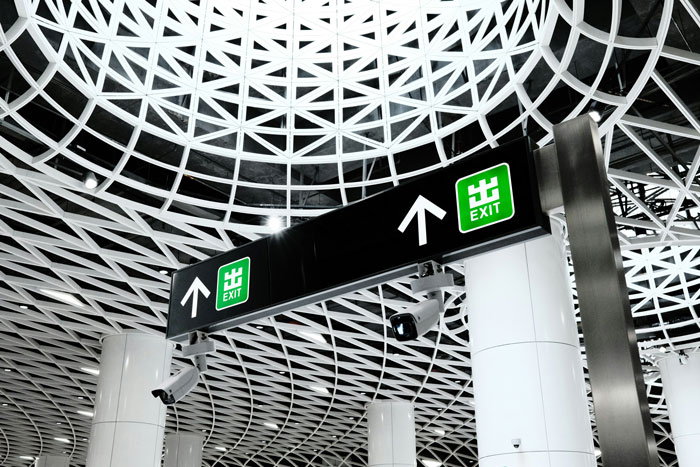
Facial recognition isn’t limited to Chinese airports, however, and is now a broadly used security measure on other airports and a multitude of phone applications.
In a similar incident, Brazilian model and influencer Janaína Prazeres recently shared that she was detained for 40 minutes at immigration when officials failed to recognize her surgically enhanced face.
With over $1 million worth of plastic surgery procedures, which include rhinoplasties, body lifts, and full facial “harmonization,” Prazeres looked remarkably different from her passport photo.
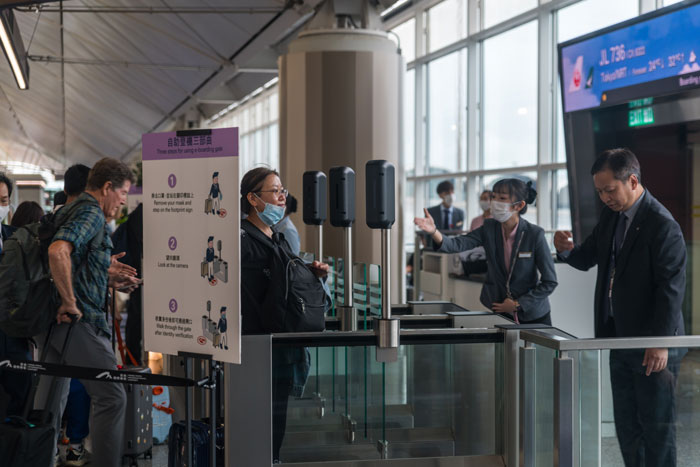
“I always knew this could happen at some point because my appearance has changed a lot over the years,” she said.
The model promptly updated her photo after the ordeal. “I didn’t want to go through that kind of embarrassment again,” she said.
While many observers fault both women for failing to comply with security measures and prioritize their beauty, others believe the issue highlights the increasing inflexibility of machine-driven decision-making.
“This is why I have trust issues.” One user joked





















